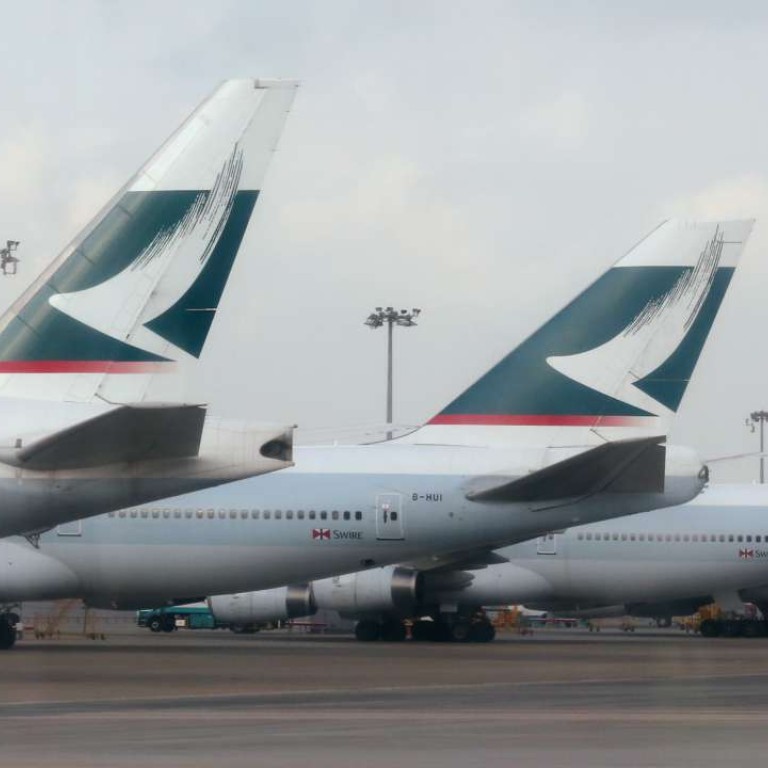
Shareholders slam Cathay Pacific for declining premium image and fat management bonuses
Shareholders of Cathay Pacific Airways came down heavily on the management at its annual general meeting for its declining image as Hong Kong’s premium airline and the big bonuses received by its management despite the poor performance of the company’s stock.
One shareholder and frequent flyer alleged the company’s cost-cutting measures have reduced Cathay “from a premium airline to a not-so-premium airline”. He also questioned the rationale for Cathay’s expensive rebranding of Dragonair and its plan to cram more seats on its B777 planes. “If the management just focuses on raising the passenger load (capacity utilisation) instead of the yield (unit profitability), I don’t think that’s good for the company’s long-term management,” he said.
Cathay chairman John Slosar denied Cathay has lost any of its premium appeal but said reconfiguring B777 economy cabins from 9 seats on single rows to 10 is viable.
“Ten years ago Cathay was much less of a premium airline than it is today,” he said. “There is always a trade-off between the number of seats you can put on an airplane and the premiums of those seats, and we are always looking for ways we can put more seats on the airplane, because more seats probably means more revenue, and more revenue probably means more profit. But you can’t do that and just sacrifice the premium nature of the service.”
He added that many airlines around the world have configured B777 plane with 10 seats abreast and that seat design technology has improved to ensure comfort.
Cathay Pacific announced in January that it would rebrand subsidiary Dragonair as Cathay Dragon to strengthen the cheaper, short-haul subsidiary’s brand alignment with Cathay. Chief executive Ivan Chu said at the time HK$100 million would be spent to promote the new brand.
One shareholder asked if the management continued to pay themselves bonuses and when dividends might rise. Cathay’s shares have lost 37 per cent in the past 12 months, compared with a 27.4 per cent drop in the Hang Seng Index. But according to Cathay’s annual report, Chu’s salary and bonus last year amounted to HK$10.1 million, up from HK$7.37 million in 2014. Chief operating officer Rupert Hogg received HK$11.12 million, the most among the directors, up from HK$6.52 million a year ago.
Cathay’s net profit rose 90 per cent to HK$6 billion last year while dividends rose from 36 HK cents to 53 cents.
Slosar, whose own pay dropped to HK$1.98 million from HK$7.37 million, said directors’ remuneration is determined by an independent committee and that he could not forecast future dividends, which depend on the company’s performance.
Cathay’s shares slid 1.14 per cent on Wednesday to HK$12.14 by noon.
The company declined to comment on a report by the Australian Financial Review on Monday that it could be interested in buying a stake in Virgin Australia in order to fend off rivals Qantas Airways and Singapore Airlines. “We would not comment on market rumours,” a spokesman said.

